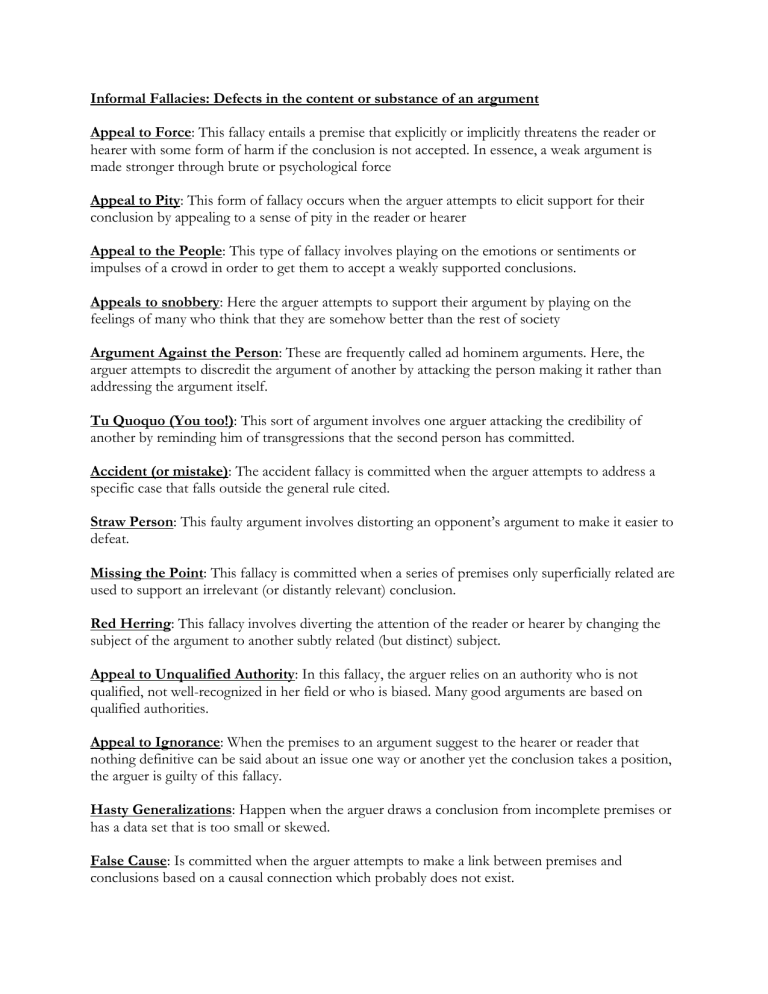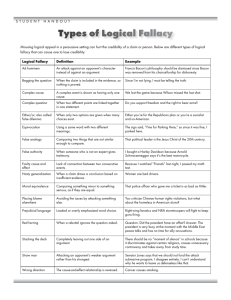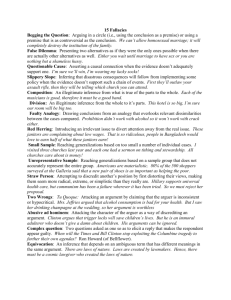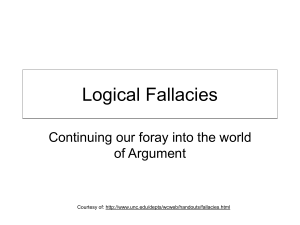
Informal Fallacies: Defects in the content or substance of an argument Appeal to Force: This fallacy entails a premise that explicitly or implicitly threatens the reader or hearer with some form of harm if the conclusion is not accepted. In essence, a weak argument is made stronger through brute or psychological force Appeal to Pity: This form of fallacy occurs when the arguer attempts to elicit support for their conclusion by appealing to a sense of pity in the reader or hearer Appeal to the People: This type of fallacy involves playing on the emotions or sentiments or impulses of a crowd in order to get them to accept a weakly supported conclusions. Appeals to snobbery: Here the arguer attempts to support their argument by playing on the feelings of many who think that they are somehow better than the rest of society Argument Against the Person: These are frequently called ad hominem arguments. Here, the arguer attempts to discredit the argument of another by attacking the person making it rather than addressing the argument itself. Tu Quoquo (You too!): This sort of argument involves one arguer attacking the credibility of another by reminding him of transgressions that the second person has committed. Accident (or mistake): The accident fallacy is committed when the arguer attempts to address a specific case that falls outside the general rule cited. Straw Person: This faulty argument involves distorting an opponent’s argument to make it easier to defeat. Missing the Point: This fallacy is committed when a series of premises only superficially related are used to support an irrelevant (or distantly relevant) conclusion. Red Herring: This fallacy involves diverting the attention of the reader or hearer by changing the subject of the argument to another subtly related (but distinct) subject. Appeal to Unqualified Authority: In this fallacy, the arguer relies on an authority who is not qualified, not well-recognized in her field or who is biased. Many good arguments are based on qualified authorities. Appeal to Ignorance: When the premises to an argument suggest to the hearer or reader that nothing definitive can be said about an issue one way or another yet the conclusion takes a position, the arguer is guilty of this fallacy. Hasty Generalizations: Happen when the arguer draws a conclusion from incomplete premises or has a data set that is too small or skewed. False Cause: Is committed when the arguer attempts to make a link between premises and conclusions based on a causal connection which probably does not exist. Slippery Slope: Starts from a small number of verifiable premises, but then moves to conclusions that are thought to be conceptually linked in a way which proves to be faulty.


